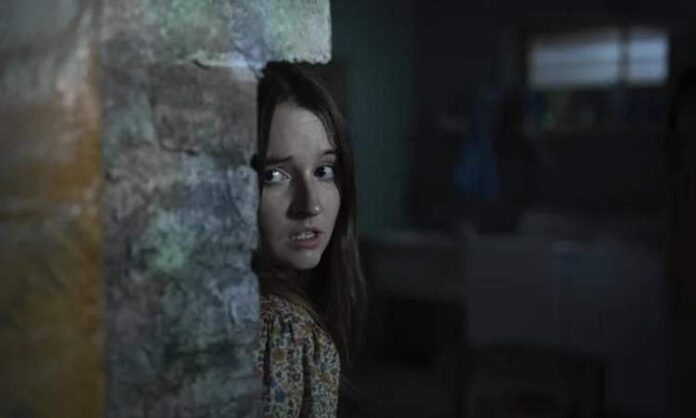I’ve been maintaining a safe distance from the horror genre for quite some time now. But, when I hear aliens (or sci-fi!), the temptation becomes too strong to resist. My ears perk up. My eyes widen. Brian Duffield’s No One Will Save You, streaming on Disney+ Hotstar in India, delivers a degree of high that no thriller in recent memory did for me. It combines two ‘invasion’ sub-genres — alien and home — to splendid results. Even more impressive is the decision to do away with dialogues, save for one line in a crucial, defining moment that makes complete sense given the context.
Director: Brian Duffield
Cast: Kaitlyn Dever
Streamer: Disney+ Hotstar
How many of us can imagine watching or making a 90-120-minute film today without dialogues? No One Will Save You is a brilliant, daring testament to how that can be made possible without even a dull minute. It all depends on who is writing and executing the script, right? Thankfully, Brian Duffield understood the assignment.
Remember the early work of M Night Shyamalan and Christopher Nolan, when their films were relatively less encumbered with the demands of a massive budget, corporation or a wider audience? When the emphasis was more on stimulating, endlessly debate-worthy ideas than spectacle? Not that these filmmakers don’t do that now, but the cerebral pleasures that something like The Prestige (sci-fi) and Signs (sci-fi) offered far outweigh anything put out by the same filmmakers today.
That said, despite the single-setting narrative and the film’s primary focus being Kaitlyn Dever’s protagonist, No One Will Save You rarely feels like a low-budget feature because it’s loaded to the brim with clever ideas, enough chill-inducing moments to make the hair on your back stand up, and atmosphere-rich spectacle to make it seem like a $100 million movie. Before it gazes too deep into the abyss, it does something interesting: putting us through situations that other alien invasion films — most notably Steven Spielberg’s E.T., Jurassic Park and War of the Worlds — familiarised us with.
You know, the strange sound that hints at an alien presence in your home. Someone rummaging through your things. The creaking wooden doors and floorboards. That scary, looming shadow in the background. Those two glowing eyes on a weirdly shaped head attached to a tall, sinewy frame? The protagonist in the foreground hiding from the creature in the background. And when things get more intense, No One Will Save You also evokes iconic images from The Shining and The Exorcist.
The familiarity also applies to the design of the creatures and their vehicles. They are as rudimentary as they come, but that doesn’t matter. What Duffield does with the material makes a big difference. Multiple opportunities for tension and terror arise when these creatures come in *gulp* different sizes and powers that make one go, “What the…?” Are these aliens simply here to terrorise people, or do they have in mind a higher purpose? Brace yourselves for some of the most inventive peek-a-boo games ever filmed!
I presume the idea of unleashing these familiar images early on is aimed at establishing a sense of comfort, considering the dialogue-less approach and all, to eliminate any concern with regard to the acceptability factor among impatient viewers. Duffield’s approach to dialogues is much closer to that of Jacques Tati in that, on a few occasions, we hear faint whispers of background characters conversing; none of it is intrusive. No One Will Save You boasts an immaculate sound design. I don’t recall any recent film, save for Oppenheimer, making us aware of individual units in its soundscape.
What also contributes healthily to the attention-grabbing endeavour is an attempt to paint a picture of a possible past trauma in the protagonist’s life, the details of which are vague, all conveyed through images. There is no attempt to spoonfeed; the film goes back to the very basics, valuable lessons one can glean from the silent film era, when filmmakers found inventive ways to tell a story; when performers were adept at expressing every thought and emotion of their characters through subtle facial tics and gestures. An extraordinarily expressive actor like Kaitlyn Dever gives this film a great advantage. One glance, one turnaround, and one pause are enough to tell us what she must be thinking. Every emotion registers. Remember — no dialogues!
The other advantage of omitting dialogues is the climactic moments get rescued from predictability. When the characters are not spelling out what’s happening to them or what they are thinking, it’s up to us to figure out what is — or could be — happening and what it all means. Don’t you love it when that happens? Owing to this quality found rarely in movies today, I’m going as far as to call Duffield’s film ART. It may have even brought back my appetite for horror movies. Exciting times ahead.
#Save #MovieReviewAlien #invasion #horror #cerebral #twist #Cinema #express

